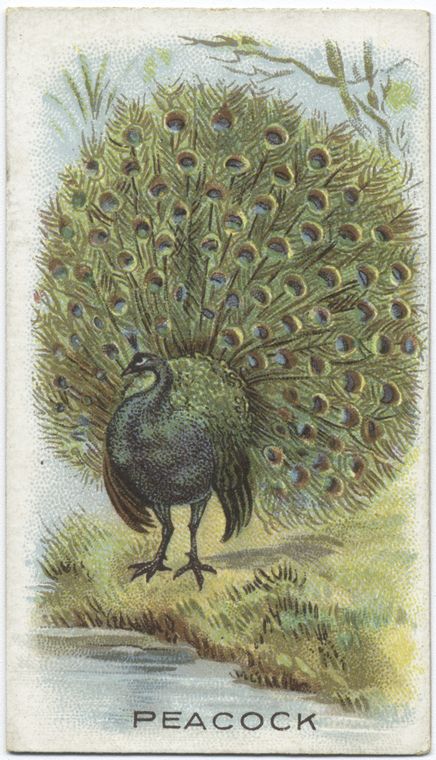Biblio File
The Queen of the Birds
 Flannery O'Connor, who would have been 84 today, is best known for her dystopic portrayals of the South and Southerners in her novels Wise Blood, and The Violent Bear it Away, and in short stories like "The Displaced Person" and "The Life You Save May Be Your Own”. She died in 1964 at the age of 39 from complications related to lupus. O’Connor’s characters were more often than not non-believers; folks you'd be more likely to see in the wee hours of Sunday morning by the side of the road than in the front pew. In her work, however, the author returned again and again to religious themes, drawing on extensive theological reading and her deep-rooted devotion to the Catholic Church.
Flannery O'Connor, who would have been 84 today, is best known for her dystopic portrayals of the South and Southerners in her novels Wise Blood, and The Violent Bear it Away, and in short stories like "The Displaced Person" and "The Life You Save May Be Your Own”. She died in 1964 at the age of 39 from complications related to lupus. O’Connor’s characters were more often than not non-believers; folks you'd be more likely to see in the wee hours of Sunday morning by the side of the road than in the front pew. In her work, however, the author returned again and again to religious themes, drawing on extensive theological reading and her deep-rooted devotion to the Catholic Church.
O’Connor once wrote that the Comic might be the opposite of the Terrible, but in her writing, much of the bite and authenticity of her work was generated from a mixture of the two. Her stories were told as only O’Connor could, with an uncommon ability to parrot natural speech-- particularly the vernacular of Georgia-- pitch-perfectly, an off-kilter sense of humor, and affection for the creatures of the South, human and animal alike.
The author's letters to her many friends are collected in The Habit of Being, edited by Sally Fitzgerald (Fitzgerald and her husband, the poet and classicist Robert Fitzgerald, were long-time friends). It is in these letters that O'Connor comes to life most vividly: as an unmatched wit and keen observer of her immediate surroundings on the farm she shared with her mother Regina in Milledgeville; as den mother there to peafowl, chickens, and geese; as a frequent invalid, confined to that farm by physical limitations—limitations that she drew on to develop themes of suffering and redemption in her own work; and finally, as a disciplined and intellectually rigorous writer, who applied herself to her writing desk for two to three hours daily, whether she felt like it or not.
One of O'Connor's more famous correspondents, the writer Elizabeth Hardwick, was interviewed before her death in 2007 by biographer Brad Gooch. Gooch’s recent Flannery: A Life of Flannery O'Connor, was published last month by Little, Brown. Gooch has said that Hardwick once questioned the viability of writing an O’Connor biography. Certainly the writing was excellent. But was there really a story of a life there?
O’Connor’s epistolary writing suggests it was a very rich life, albeit somewhat unconventional. O’Connor did not travel much; from 1950 on, much of her energy was dedicated to writing her fiction and staying well enough to write it. Nevertheless, her letters provide insight into her friendships and influences, as well as her viewpoints on contemporary art, literature, and theology. Famous friends Robert Lowell and Elizabeth Bishop, and unknown writers like Betty Hester (“A” in Habit of Being) were regularly entertained by stories about the farm and its inhabitants, by tales of visits from local and visiting writers, and of course, anecdotes about her birds.
On occasion, O’Connor’s correspondents were gifted the odd peacock feather or two. In a 1955 letter in the Henry and Albert Berg Collection of English Literature to Randall Jarrell and his wife, O'Connor thanks the Jarrells for visiting her on the farm, and expresses regret that the full four-foot long feather she'd like to send their daughter is unmailable. She hopes she will enjoy the clipped tail feathers enclosed.

O’Connor documents her love affair with peacocks in essay form in "King of the Birds", found in the Library of America edition of her Collected Works. O'Connor writes about the peacock’s unfurling of his tail feathers:
Before anyone has had a chance to see it, he swings around so that his back faces the spectator. This has been taken by some to be insult and by others whimsy. I suggest it means only that the peacock is equally well satisfied with either view of himself.
O’Connor’s back in some respects has always been to her readers. Her private life, though animated by her letters, still remains somewhat of a cipher. Nevertheless, the student of O'Connor is presented with a portrait of a writer well satisfied with both her public writing and her private life. Backwards and forwards, she lived a life in keeping with who she aspired to be. As she wrote Ben Griffith in 1955 in a letter included in Habit of Being, "observe that I admire my own work as well as anybody else does."
Read E-Books with SimplyE
 With your library card, it's easier than ever to choose from more than 300,000 e-books on SimplyE, The New York Public Library's free e-reader app. Gain access to digital resources for all ages, including e-books, audiobooks, databases, and more.
With your library card, it's easier than ever to choose from more than 300,000 e-books on SimplyE, The New York Public Library's free e-reader app. Gain access to digital resources for all ages, including e-books, audiobooks, databases, and more.
If you don’t have an NYPL library card, New York State residents can apply for a digital card online or through SimplyE (available on the App Store or Google Play).
Need more help? Read our guide to using SimplyE.